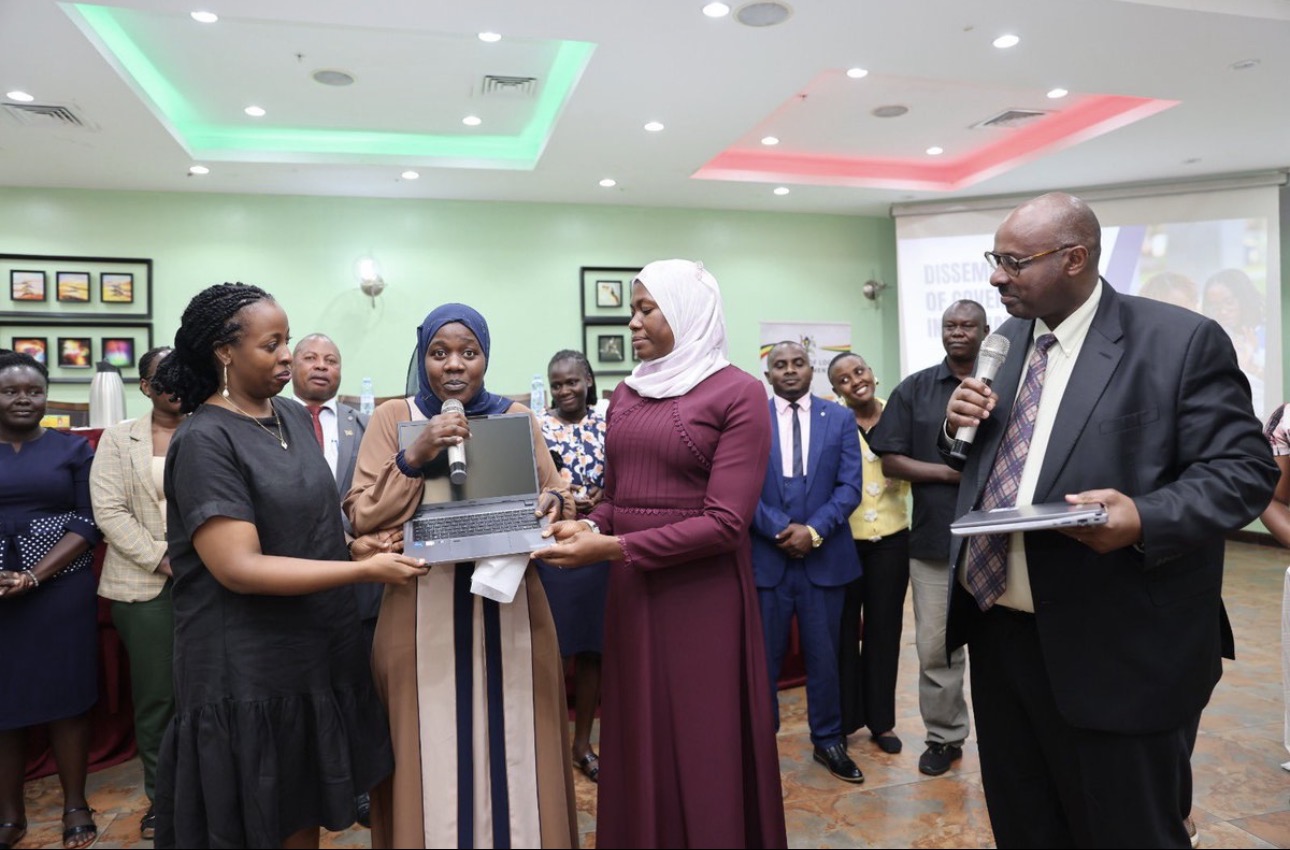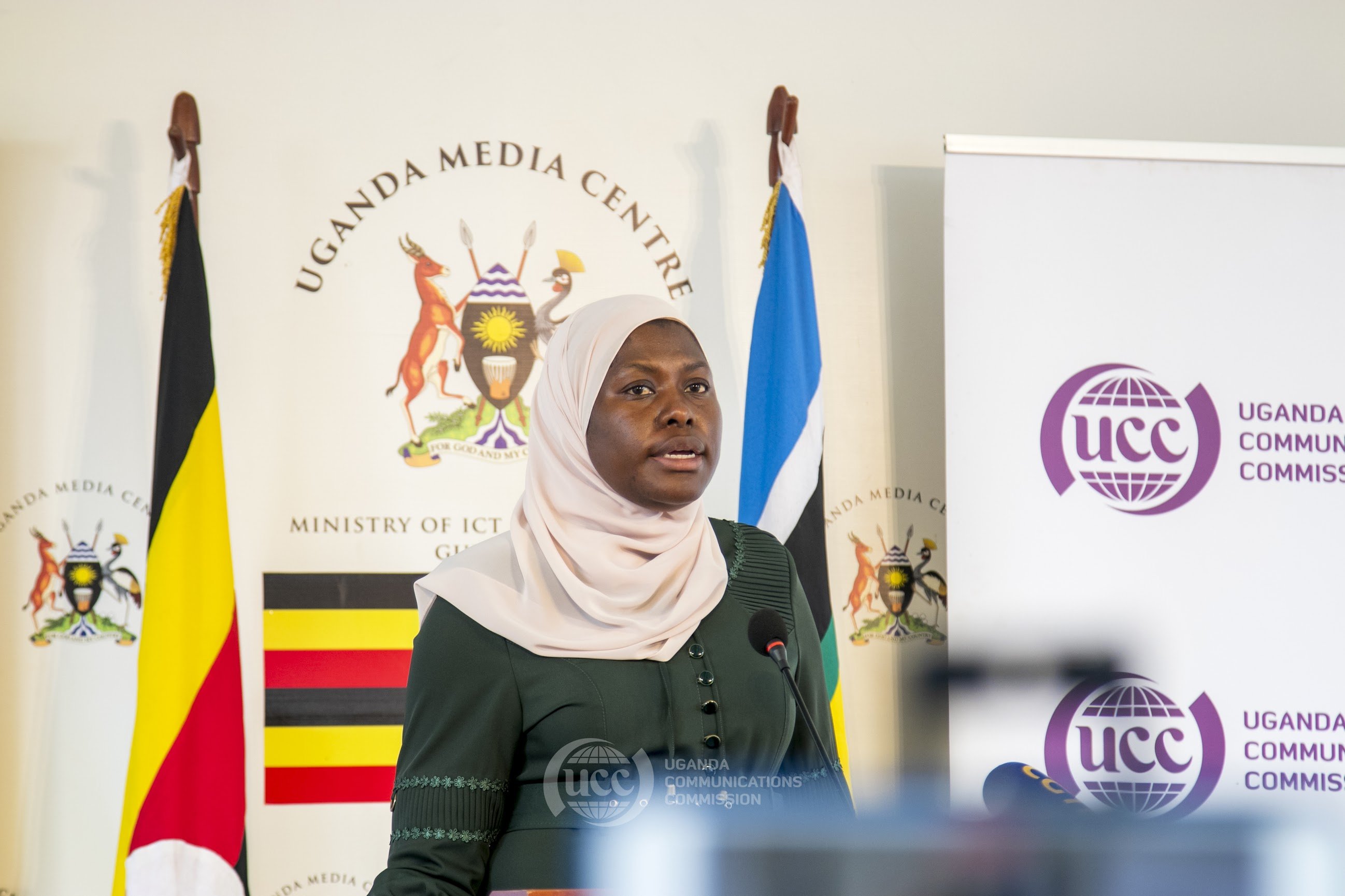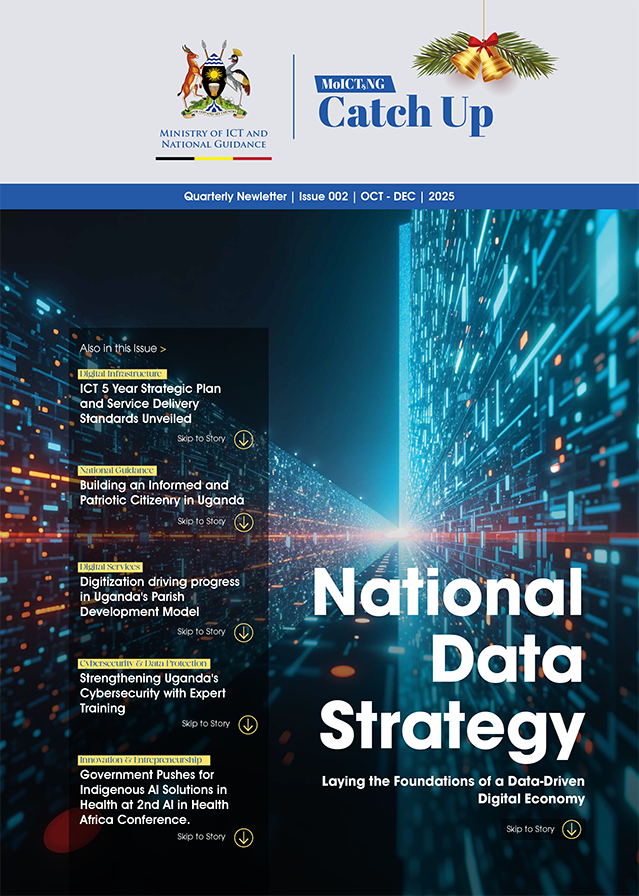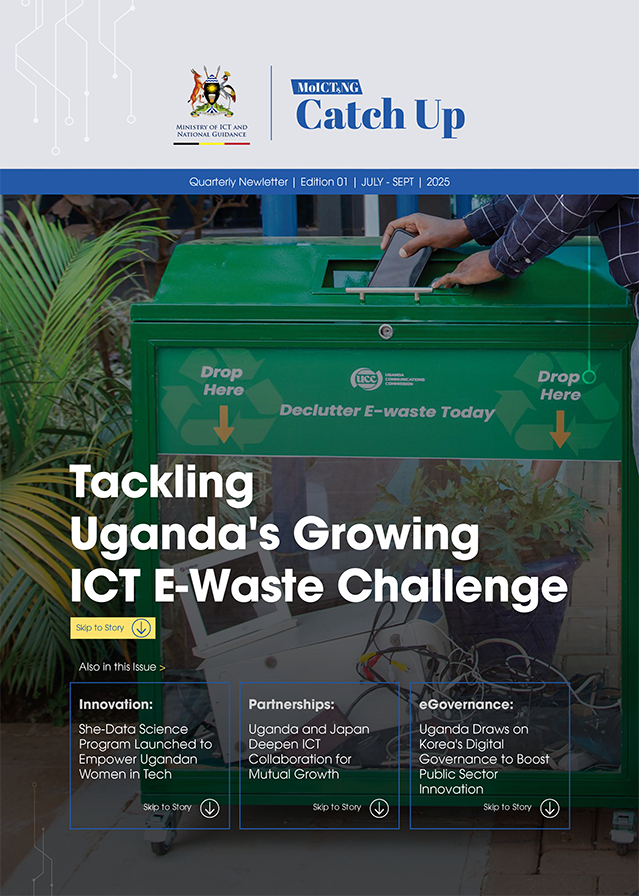Key Priorities [2025-26]
-
Enhancing ICT skills and vocational development
-
Effective communication and national guidance
-
Strengthening Cyber Security in the country
-
Strengthening of Business Process Outsourcing
-
Supporting local innovation and promoting export of knowledge products
Latest from the Ministry
Ministry of ICT Equips Local Government Communicators with Laptops
CommunicationThe Ministry of ICT and National Guidance has today handed over laptops to 176 District Communication Officers to enhance government information dissemination and strengthen strategic communication at the local government level. The handover ceremony took place at the Imperial Royale Hotel, Kampala, and was presided over by the Permanent Secretary, Ministry of ICT and National Guidance, Dr. Aminah Zawedde. The initiative is part of Government’s ongoing efforts to empower communication officers across districts, municipalities, and cities with digital tools necessary to effectively communicate government policies, programmes, and projects within the communities they serve. Speaking to the media, Dr. Zawedde underscored Government’s commitment to strengthening communication at the grassroots, noting that effective communication is now a core pillar of governance, service delivery, and accountability. “At the start of the new year, Government has prioritised the empowerment of communication officers at local government level. Through this initiative, 176 officers across districts, municipalities and cities are being equipped with laptops to strengthen their capacity to communicate government programmes and projects within the communities where they work and reside,” she said. Dr. Zawedde observed that for many years, communication officers have operated under significant constraints, relying largely on traditional communication methods such as press statements and newspaper articles, despite the rapid shift to digital platforms. “Today, effective public communication requires an active digital presence. Citizens expect timely information on platforms such as WhatsApp, X (formerly Twitter), TikTok, and other social media channels. These tools are essential for real-time engagement and public accountability,” she noted. She further emphasized that while Government has delivered tangible results across the country; including construction of schools, upgrading of roads, establishment of health facilities, computer laboratories, and implementation of community-based interventions, many of these achievements are not always clearly or promptly communicated at the grassroots. The laptops are therefore intended to enable communication officers to document, package, and disseminate evidence of service delivery more effectively, ensuring that citizens are informed about what government is doing, where it is happening, and who is benefiting. In his address to the district communication officers, the Permanent Secretary Ministry of Local Government, Mr. Ben Kumumanya, encouraged District Communication Officers to uphold professionalism and accountability in the execution of their duties. He called upon them to play an active role in socio-economic transformation by effectively communicating government programmes and achievements. “Let us make a meaningful contribution to socio-economic transformation by clearly communicating and telling the stories of what government is doing for the people of Uganda. Above all, let us love and protect our country, Uganda, because we do not have another one,” Mr. Kumumanya said. Beneficiaries welcomed the support, describing it as timely and transformative. Ms. Mariam Nalubwama, the District Communication Officer for Butambala District, expressed appreciation to the Ministry for the intervention. “I am so excited to receive this gadget. You may not know what you have done for us, but this support has truly made a difference. You have surely brought me from zero to where I am now,” Ms. Nalubwama said. Dr. Zawedde cautioned that while the equipment is a critical enabler, it must be matched with professionalism, planning, and responsiveness. Communication officers were urged to go beyond posting content to actively engage citizens, respond to public inquiries, and promptly counter misinformation with verified facts. The intervention aligns with the Ministry’s leadership role under the Universal Digital Acceleration agenda, which seeks to leverage digital tools to promote transparency, accountability, and citizen-centered governance. Dr. Zawede reaffirmed the Ministry’s commitment to continued capacity building, guidance, and coordination of government communication across Ministries, Departments, Agencies and Local Governments, noting that strengthened communication is essential to safeguarding public trust and demonstrating the impact of government programmes at all levels.
Jan 7, 2026


MoICT & NG Newsletter
View All40m+
Mobile Subscriptions17m+
Internet Subscriptions1,466
Government Offices connected to Fibre Internet4,400+
Kms Covered by Fibre17
Regional ICT Innovation HubsUpcoming Events
-
October 6th - 8th 2026Digital Government Africa Summit 2026
Speke Resort Munyonyo, 09:00pm
Government eServices
Recent Releases
- Press Release - Elections, Media Responsibility, and Internet Rumours
- e-Government Interoperability Framework Reference Architecture
- Scheme of Service for the IT Cadre
- ICT Strategic Plan 2025/26 - 2029/30
Ministry Projects
- Big Data Landscape Assessment for Uganda
- Artificial Intelligence Landscape Assessment for Uganda
- ICT Local Manufacturing
- ICT Application for People with Disabilities
- Last Mile Connectivity














